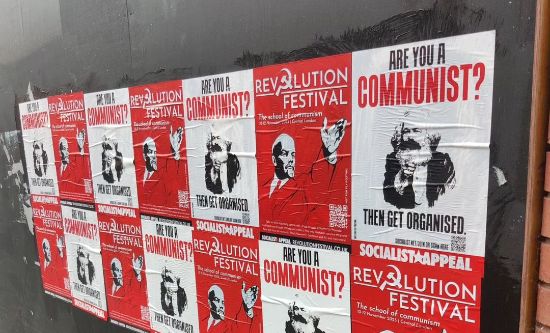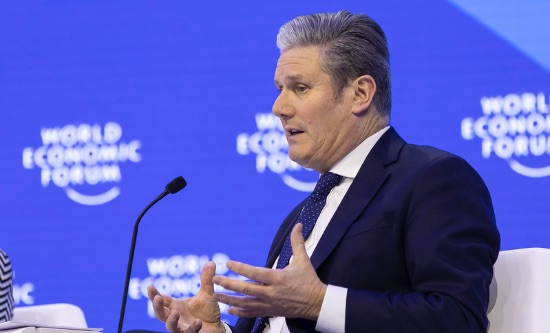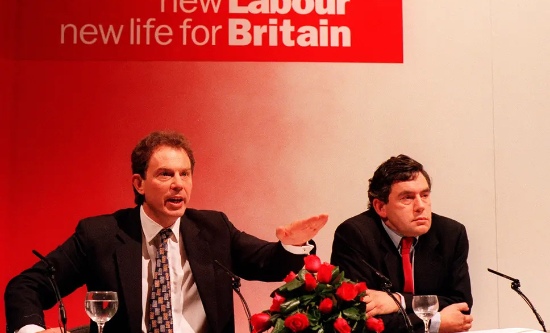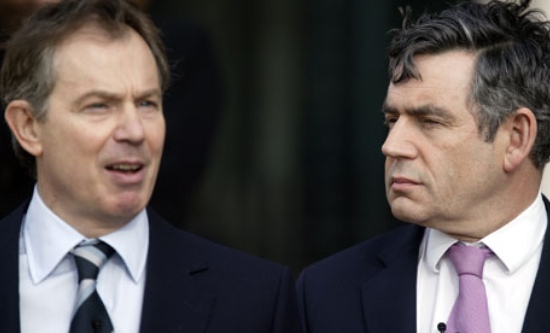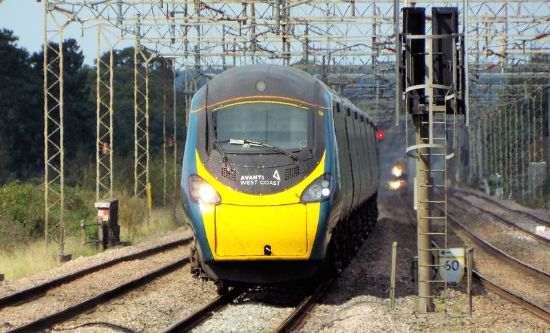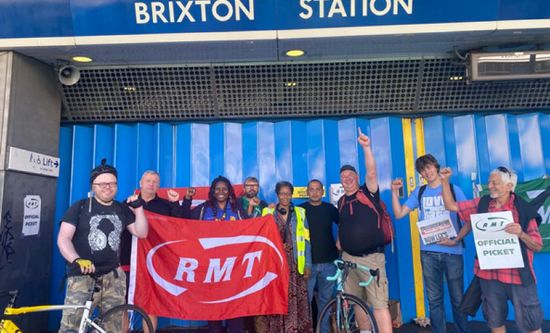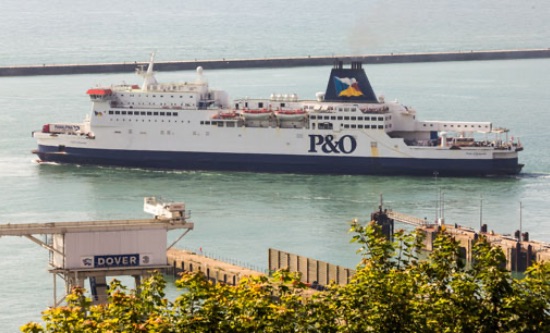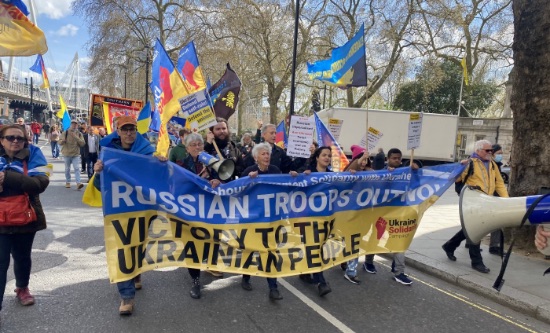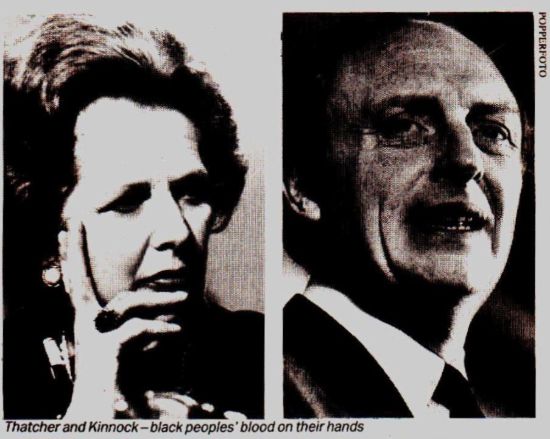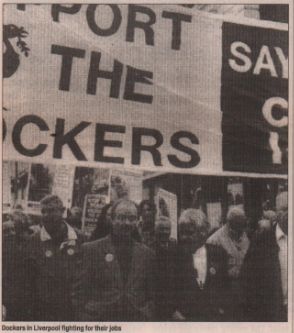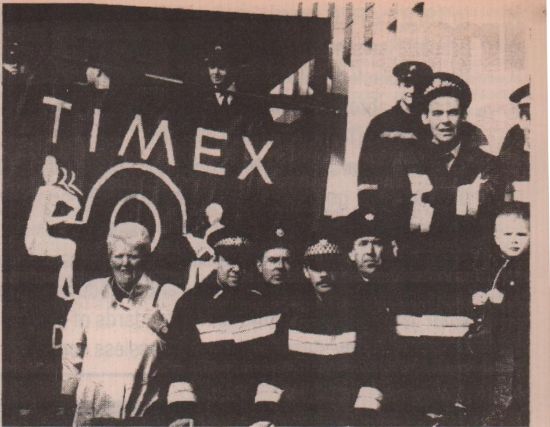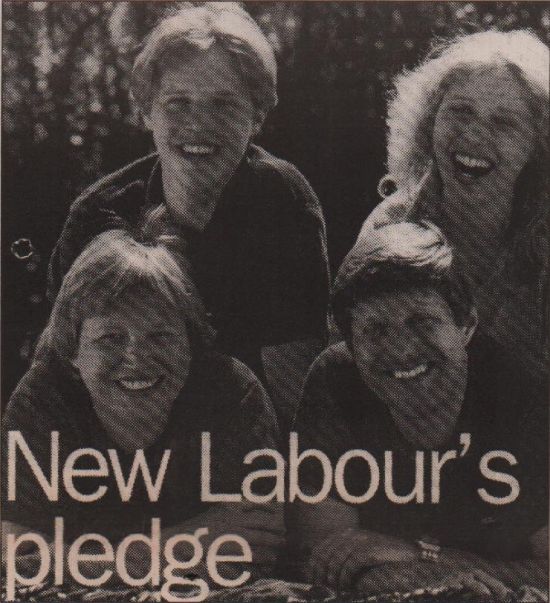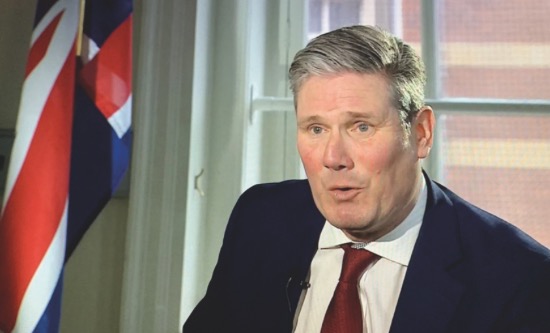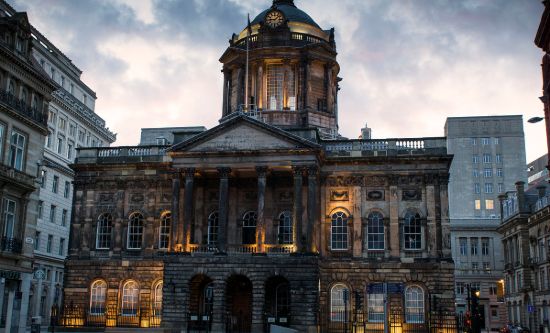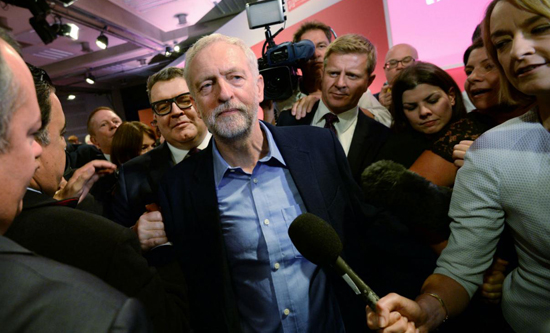Socialist Worker: vote for genocide!
- Details
- Created: Tuesday, 07 May 2024 13:32
- Written by Robert Clough
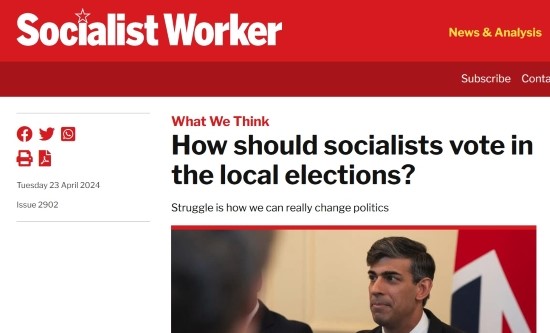
On 2 May local elections took place across Britain. Normally they are of little significance since the candidates of the major parties are always committed to setting local authority budgets which are legal and which therefore continue to cut jobs and essential services for the working class. However, this year the ruling class and its media were concerned first, to see how far the Tory Party’s electoral support had disintegrated, and second, to determine whether there has been a significant hit on Labour Party fortunes both because of its naked support for continued austerity, and for its defence of the genocide in Gaza.

